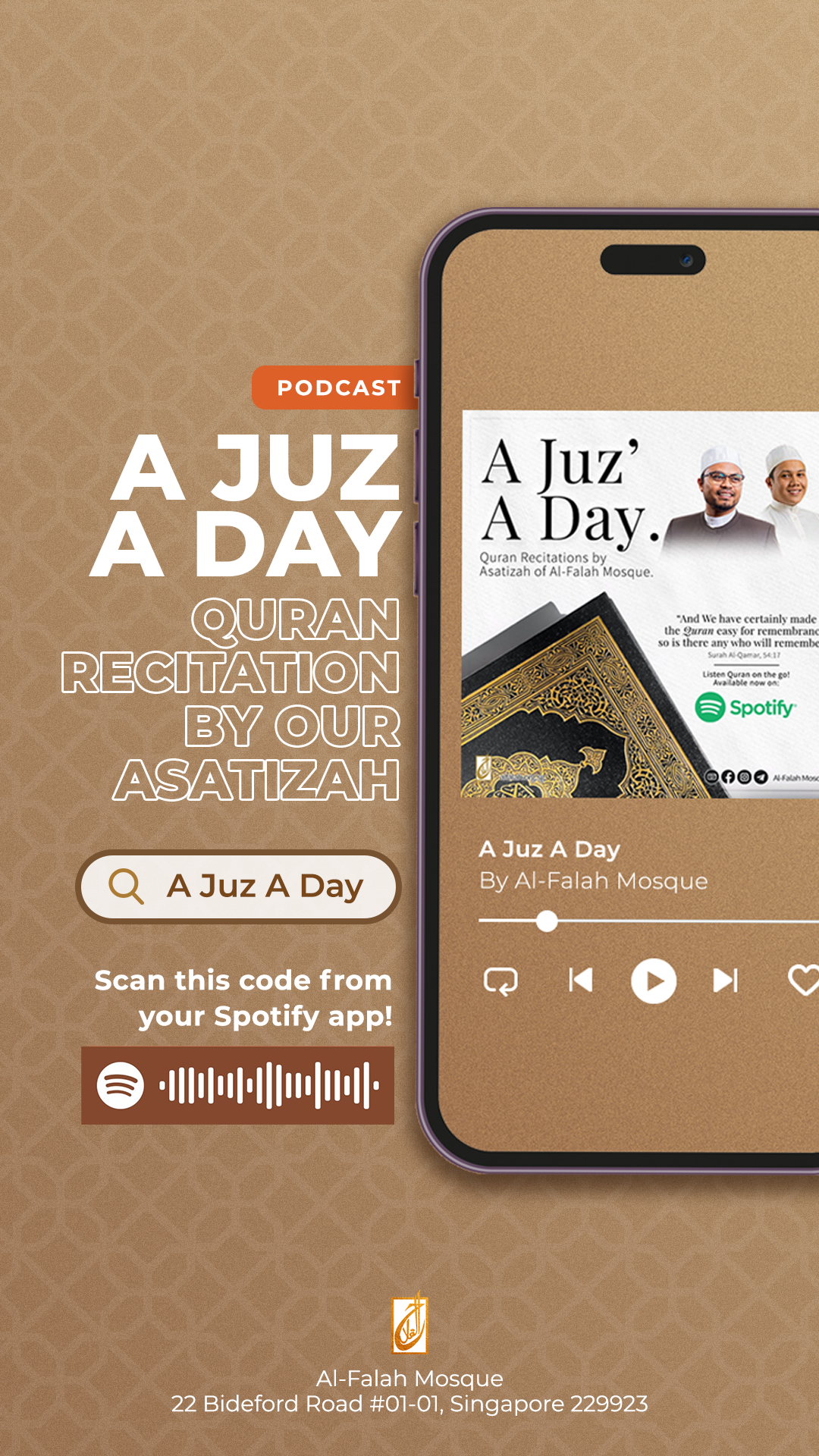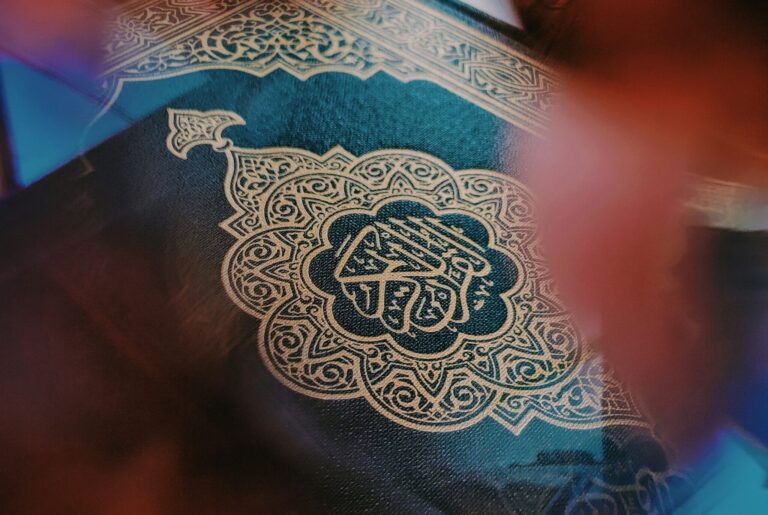Articles
The Virtues of Patience
- BY Ustazah Sharifah Inshirah
- ON
- patience, spirituality, faith
Understanding Patience
There is no single human being that is not touched by adversity or hardship. It is from the promise of Allah SWT to afflict His servants with tests, trials and tribulations in its multitude of forms and reasons. Yet, only a few recognise the worth to withstand and remain patient, amidst anything that one has to go through. Patience is an acquired mastery, and not everyone is able to attain its essence, unless he or she has learnt to do so, gradually and through a series of experiences. Only those who believe, the pious and those who understand the reality of the unknown rationale of difficulty will find it easy to be patient. For this reason, many stories were written to narrate and showcase how the predecessors endured their sets of hardship; especially the prophets who faced the most difficult of tests and how they navigated their way through it gracefully.
To appreciate patience, it is befitting that one knows what the definition of patience entails and what is the best type of patience. Let us benefit from the words of a prolific scholar, who lived in the 14th century yet his wisdom and knowledge is bequeathed to us until this very day. Ibn Qayyim, may Allah be pleased with him, left an important book titled “The Excellence of Patience and Gratefulness” that expounds on this much needed concept to get through life.
Patience is a Must
Patience in Arabic, comes from the word “Sabr” which means to detain, refrain and stop. Linking it to spirituality, patience is to stop ourselves from despairing and panicking, to guard our tongues from complaining. It is said in a quote: “The one who has patience is the one who has trained himself to handle difficulties.” In another narration, Amr Ibn ‘Uthman Al-Makki said; “Patience means to keep close to Allah and to calmly accept the trials He sends without complaining or feeling sad.” The beloved cousin of the Prophet SAW, Ali RA said: “Patience means to seek Allah’s help.”
It is of no doubt that all of us will face some form of difficulty in life. It is interesting to note too that many times, Allah SWT has carved our own set of struggles according to our own interest, nature and sometimes because He knows that it is most suited due to the best of our own strengths. Though oft-repeated, this verse is one that should be used as a charm to carry, to remind ourselves that, while anything is hard, we were meant for that test and that no one else could have gone through that except us, because He trusts that we could have managed it. Allah SWT says:
لَا يُكَلِّفُ ٱللَّهُ نَفۡسًا إِلَّا وُسۡعَهَاۚ
“God does not burden any soul with more than it can bear”
(Surah Al-Baqarah Verse 286)
In situations where a person does not choose to go through a certain difficulty, for example; being afflicted by an illness he does not ask for, a sudden death of a loved one, or a rejection for a job or means to attain providence, then it is obligatory for him or her to be patient with whatever has befallen upon him. Ibn Qayyim intricately categorizes patience into five categories; Obligatory (Wajib), Encouraged/Recommended (Mandub), Forbidden (Mahzur), Disliked (Makruh) and Permissible (Mubah).
In many other situations, patience is also one that should be exercised at times of ease and is in fact most difficult to do so, since convenience is more beloved to humans and we may never even be aware that there is a need to be patient when things seem to be going smoothly. Additionally, times of ease are when we have the liberty of choice. There are trials in comfort and ease such as the breaching of values, being too comfortable with luxury or fixation with worldly matters that the main essence of life is lost. This is in line with the saying of the pious predecessors:
“Believers and unbelievers alike may have patience at a time of adversity, but only people of strong faith can have patience at times of ease.”
This comes to show that patience is not something that is all good nor all bad, but it must be seen and judged according to the context of the situation. Delving deeper, the five categories of patience, in sum, are as follows;
1. The Obligatory Patience (Wajib)
This patience is to have forbearance with 2 aspects; the internal and the external. Internal patience means that the believer is to be patient with his own Nafs (desires) and to abstain from doing evil and persist in doing goodness. Such acts require patience because naturally, our desires are inclined to the opposite and such is the nature of mankind as mentioned in a verse:
إِنَّ النَّفْسَ لَأَمَّارَةٌ بِالسُّوءِ
“for indeed the soul is ever inclined to evil”
(Surah Yusuf Verse 53)
Since the matters of abstinence from the haram and the obligation to do the ordained acts (of worship, ethics and mannerisms or human interactions) are a no-compromise, patience in persistence in performing them also becomes obligatory. As for the matters that are external and beyond the control of an individual, like an unexpected calamity, it is also incumbent upon him to be patient, for that is the decree of Allah SWT that He has set and allowed for it to happen. Such happenings should be perceived as a gift from Allah SWT as what we call to be the Qadr (decree) that may bring him or her to a greater goodness, if seen in a positive light. This is where the Prophet SAW has taught us, when afflicted with pain or difficulty, one should remain patient and then say:
قَدَّرَ اللهُ وَمَا شَاءَ فَعَلَ
“A decree of Allah and He does whatever He wills.”
(Muslim)
2. The Encouraged Patience (Mandub)
As the name suggests, the encouraged patience is one that is linked to encouraged deeds. The servant who aims to go beyond the obligatory will surely encounter another hurdle, which is to be strong in wanting to perform the supererogatory acts and be consistent in them. Supererogatory acts include the Sunnahs performed by the Prophet SAW that were not obligatory. This is because the rewards of those who perform such acts will attain a higher reward and be closer to that of the Prophet SAW.
Interestingly, an encouraged patience is also when someone is patient in a time of anger and does not seek revenge. Ibn Qayyim highlights the concept of vengeance as something that is encouraged for one to be patient with, and withhold oneself from doing so, if possible. This is especially applicable in more critical situations such as when someone takes away a right, money, property or a life that one treasures. In big situations like these, it is of the right of the person to reclaim what he has lost; especially by a violator who has infringed the boundaries of someone else’s; yet, forgiveness and patience is closer and more beloved to Allah SWT. Allah SWT mentions in the verse:
وَلَمَنْ صَبَرَ وَغَفَرَ إِنَّ ذَلِكَ لَمِنْ عَزْمِ الْأُمُورِ
Surely the one who remains patient and forgives, (doing that) Indeed that is from the most resolute of matters
(Surah As-Shura verse 43)
In a case of a minor inconvenience, then patience is also advised and revenge should be avoided. For example, if one argues and is mocked at, sneered or spurned, then patience is more befitting and dealing with the situation in civility is more beloved in the eyes of Allah SWT, and this is what patience entails.
3. The Forbidden Patience (Mahzur)
Oftentimes, we see patience as all good and anyone who is patient is revered. While this is true to an extent, there is also a type of patience that is abhorred. This is a reminder that patience or Sabr is of a neutral nature and can be both good and bad. In this case, forbidden patience is related to things that bring harm to one’s body such as being patient from food and drink so much that it causes him harm or worse, death. In principle, anything that brings about harm should not be tolerated nor should any excuse be made with the reason to ‘remain patient’ and have ‘faith in Allah SWT’. This is in line with the maxims of Islam; to always avoid harm to a person, for the preservation of life is compulsory.
4. The Disliked Patience (Makruh)
This type of patience is mainly pertaining to things that are disliked such as being patient in abstaining from food, drink, sexual intercourse or any thing that satisfies humanely desire such that it may damage one’s health.
5. The Permissible Patience (Mubah)
Patience in this regard is to be forbearing or resisting of the matters of which are permissible; such as refraining from eating too much, even if it is allowed, or withholding oneself from the pleasures of this world to focus on the matters of the Akhirah (hereafter).
The reward of patience
Reward 1: Attaining Success
Nothing good comes without an outcome. Although sincerity is one that should be void of any want for a reward or compensation, Allah SWT, the most Just and most understanding of the nature of His servants, promises rewards for those who endures. The end goal serves as a motivation to better oneself and remain resilient despite adversities. The compensation for this is plenty and His promises are reflected in many verses in the Qur’an, one of which is where Allah SWT says:
يَا أَيُّهَا الَّذِينَ آمَنُوا اصْبِرُوا وَصَابِرُوا وَرَابِطُوا وَاتَّقُوا اللَّهَ لَعَلَّكُمْ تُفْلِحُونَ
“O you who have believed, persevere and endure and remain stationed and fear Allah that you may be successful.” (Surah Ali Imran Verse 200)
This verse is a motivation for believers in many ways; to persevere, endure and remain firm in belief and deeds amidst all odds. This verse was specifically trying to remind believers to be firm against the disbelievers and to never buy into their tricks. However, the meaning here is evergreen to any situation in life; that one should always remain stoic and endure until the end. It is Allah SWT who will give nothing but success, as mentioned in the verse. Though success is broad, here it is primarily related to spirituality, the final destination (i.e Paradise) as well as the peace of heart, because success is truly more internal than external.
Reward 2: Attaining Double Rewards
The rewards of those who persevere will also be considered doubled and Allah SWT mentions this in another verse:
أُوْلَـٰٓئِكَ يُؤۡتَوۡنَ أَجۡرَهُم مَّرَّتَيۡنِ بِمَا صَبَرُواْ وَيَدۡرَءُونَ بِٱلۡحَسَنَةِ ٱلسَّيِّئَةَ وَمِمَّا رَزَقۡنَٰهُمۡ يُنفِقُونَ
“Those will be given their reward twice for what they patiently endured and [because] they avert evil through good, and from what We have provided them they spend.”
(Surah Al-Qasas Verse 54)
Reward 3: The Angels will salute you on the day of judgment
For all the pain and suffering, Allah SWT has appointed cheerleaders to welcome the one who was patient through the gates of Paradise. Allah SWT promises in Surah Ar-Rad verses 23-24:
جَنَّـٰتُ عَدنٖ يَدخُلُونَهَا وَمَن صَلَحَ مِنۡ ءَابَآئِهِم وَأَزۡوَٰجِهِم وَذُرِّيَّـٰتِهِم وَٱلمَلَـٰٓئِكَةُ يَدخُلُونَ عَلَيۡهِم مِّن كُلِّ بَابٖ
سَلَٰمٌ عَلَيۡكُم بِمَا صَبَرتُم فَنِعمَ عُقبَى ٱلدَّارِ
“the Gardens of Eternity, which they will enter along with the righteous among their parents, spouses, and descendants. And the angels will enter upon them from every gate, saying,
“Peace be upon you for what you patiently endured. And excellent is the final home.”
Observe how Allah SWT honours those who have struggled and left all of what they wanted for His sake. He SWT offers not people, but angels to greet the patient one while he walks into his long awaited prize, the sublime heavens of Allah SWT.
Reward 4: Higher Threshold and Emotional Strength
It is mentioned: “To have patience means that one’s common sense and religious motives are stronger than one’s whims and desires.” Patience requires an emotional and psychological muscle that will be strengthened over time. For example, if one is patient from engaging in acts of sexual desire or promiscuity, then it automatically means that this individual has acquired willpower that another person does not have. This is what is known as restraint. Restraint is also what differentiates a truly strong and disciplined person from a weak one, as the one who is weak will spontaneously act on his impulses and regret his actions only later on.
Additionally, Allah SWT has also promised that He will help to strengthen this emotional muscle so long as His servant tries. The Prophet SAW says:
“Whoever tries to be patient, then Allah will help him to be patient.”
(Sahih al-Bukhari 6470)
The first step is to always try to be patient, and if one tries with the right intentions and drive to do so, then things will be made easier for Him for his sincerity.
No one is more patient than Allah SWT
How ever hard we try to be patient in the calamities that befall, it should be remembered that it is Allah SWT who is the Most Patient, and from His 99 beautiful names lies the name As-Sabur (ie the most patient – with an exaggerated connotation to denote His utmost patience). The question to ask is how is Allah SWT patient, when He is the Lord of the Worlds, and does not face difficulties that human beings face? When identifying the patience of Allah SWT, Muslims must first keep in mind that Allah SWT does not resemble His creations in any way as mentioned in the verse:
لَيْسَ كَمِثْلِهِ شَيْءٌ ۖ وَهُوَ السَّمِيعُ الْبَصِيرُ
“There is nothing like unto Him, and He is the Hearing, the Seeing.”
(Surah As-Syura Verse 11)
The patience of Allah SWT transcends the human mind and ability, and He is patient with things that human beings may never be patient with, in His power and omnipotence. The patience of Allah SWT is when He is patient with His servants who sin, falter and fall short. It is also said that His patience is manifested through His forbearance with those who transgress His boundaries. Yet, He still gives these people provision, enjoyment and ease amidst all the wrong they have done on this Earth.
Although Allah’s patience rises above all of man’s patience, it is worth noting that patience in its essence, should be emulated as part of our worldly mission on this Earth.
Patience is a journey and a lifelong feat to master and one that may develop through a series of trials and tribulations. If we want to know whether we have patience or have succeeded in it; this Hadith is to be pondered upon when any adversity strikes, and only then will we know if we are truly from the Sobireen. The Prophet SAW says:
“The real patience is at the first stroke of a calamity.”
(Hadith No: 389, Sahih Bukhari)
Finally, the pinnacle of patience is when one is able to respond to any situation, unperturbed by the outcome, as the saying goes:
“Patience means not seeing any difference between times of ease and times of hardship, and being content at all times.
May Allah SWT grant all the Muslims who genuinely believe in Allah SWT patience and steadfastness in traversing this transitory universe and its distractions.
*For a more extensive understanding of patience, readers are encouraged to explore Ibn Qayyim’s book (available in English), Patience & Gratitude. And Allah SWT knows best.
Disclaimer
Support Our Dakwah











